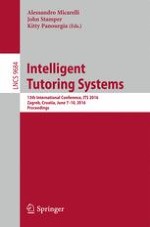2016 | OriginalPaper | Buchkapitel
Can Adaptive Pedagogical Agents’ Prompting Strategies Improve Students’ Learning and Self-Regulation?
verfasst von : François Bouchet, Jason M. Harley, Roger Azevedo
Erschienen in: Intelligent Tutoring Systems
Aktivieren Sie unsere intelligente Suche, um passende Fachinhalte oder Patente zu finden.
Wählen Sie Textabschnitte aus um mit Künstlicher Intelligenz passenden Patente zu finden. powered by
Markieren Sie Textabschnitte, um KI-gestützt weitere passende Inhalte zu finden. powered by
